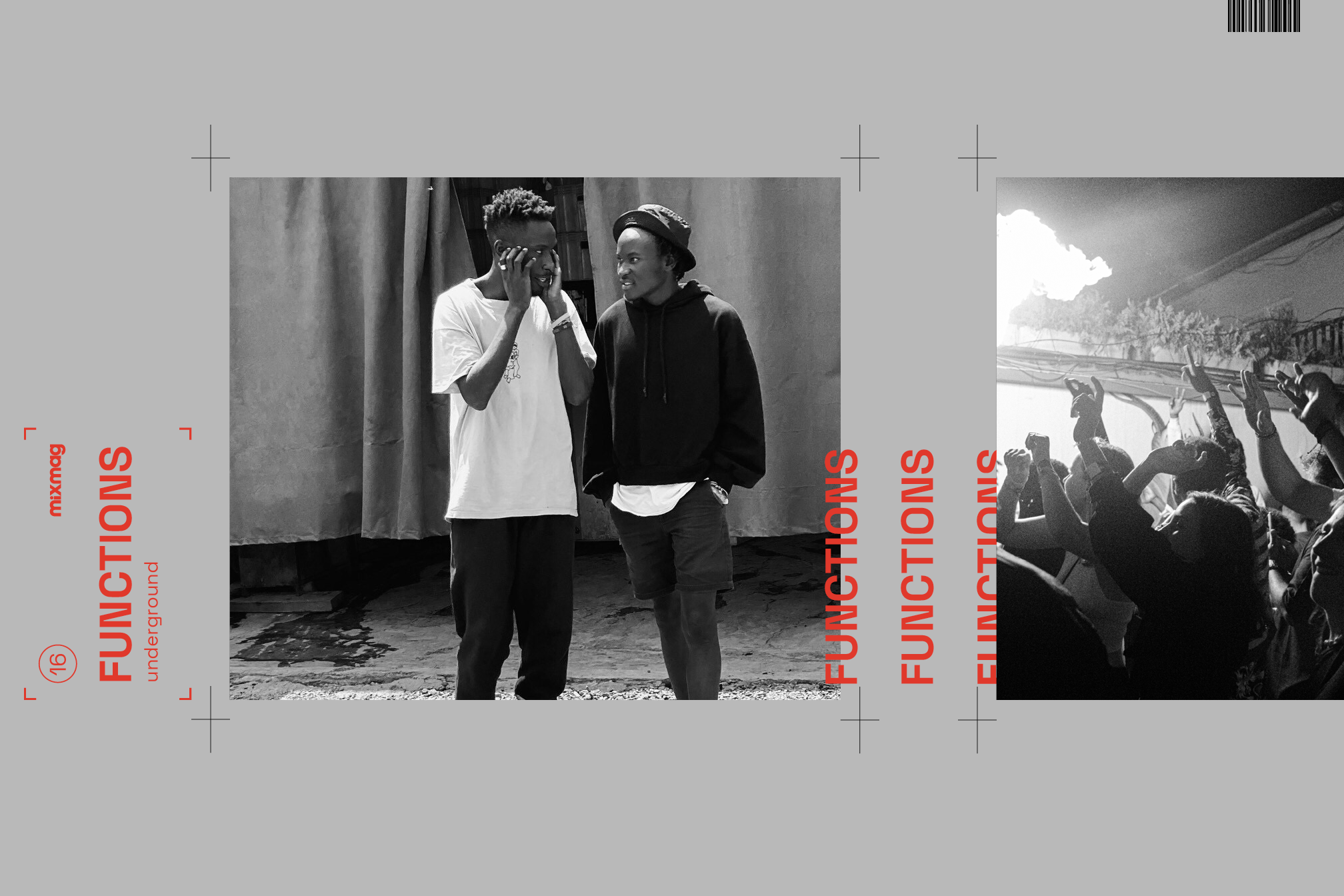 Features
Features
“People were curious”: Underground Kampala is creating a techno culture in Uganda
Aneesa Ahmed speaks to Underground Kampala founder Richard O’doi about inclusive partying, run-ins with police and taking international DJs on safari
In a country where techno is scarce, Underground Kampala is creating a haven for dedicated fans. By throwing monthly pop-up raves in mysterious locations in Kampala and in other hidden nooks around Uganda, the party is gradually building a movement.
“We created the rave to create space for positive socialisation and interactions whereby attendees immerse themselves into a free zone with removed social pressures,” explains founder Richard O’doi.
“For us this means no sexual intimidation, no homophobia, no aggression, no racism, no expectations but only a mutual understanding of self-expression.”
Formed slowly during the lockdown in 2020 after Richard’s friends threw him a surprise illegal rave for his birthday, the party platforms techno producers and DJs in Uganda and connects them with international DJs. It is run by Richard and a collective of other DJs, sound practitioners, lighting designers and producers – all of whom bonded over a shared love of electronic music.
Both the party, and the collective behind it, are centred around a love for techno and underground values. “Kampala is a bit tough for creatives, especially in a scene like this, some people would only want to attend an event because it’s popular or they worry about the number of people available and forget that it’s about the music itself.”
Read this next: ANTI-MASS are creating a subversive musical language
But Underground Kampala aims to move away from a commercial-focused approach by embracing a DIY ethos and centring the needs of its community. It throws parties in abandoned buildings, parking lots, lakes and other locations that are away from the mainstream hospitality sector in the city to give dancers a secluded safe space to discover new music and form connections. The party doesn’t want to gatekeep the genre, but it ensures that this space is free from societal gaze and stigma.
Now, the party is ready for a new phase. The crew are collaborating with techno artists and DJs overseas, and aiming to establish a permanent space to act as a second home for their community. Currently, they are fundraising to upgrade their set-up’s equipment.
“Being a pop-up rave in different locations can be fun – but it is also challenging. We need to think about the logistics, which is sometimes hard to move so much equipment and to make sure it is safe. So now, we want a permanent space – which would be the first of its kind in Kampala for techno.”
We caught up with founder Richard O’doi who told us about the party, how locations are picked by motorcycle, the stigmas associated with raves in Uganda, and the international friendships forged over safari trips.
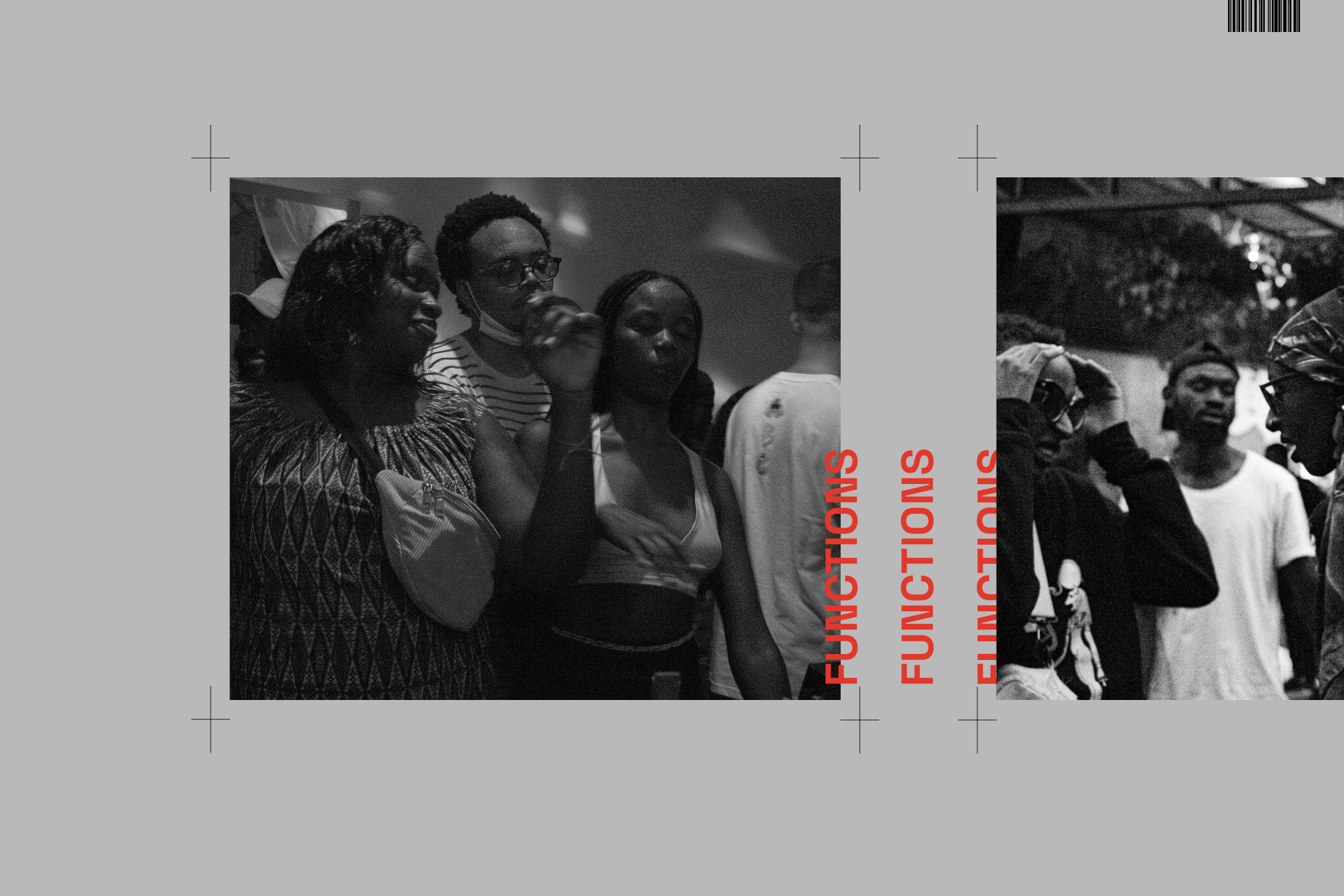
How did the party first form?
We’re a community-based collective of DJs, event organisers, photographers and more all coming together. We all collect our resources as a whole and try and push the scene together. It started with two of my close friends, Mandy and Linda, who organised a surprise birthday party for me. We had a conversation about expanding a party like this, where techno is at the core, and having more people join. We wanted to make a space for our friends and community to feel free and away from judgement and commercialised spaces. A week after my birthday party we set up a Whatsapp group of like-minded people and started inviting them to a rave. We set up everything within this week. It was actually in lockdown! It was very home-made, we got all the equipment and soundsystem together ourselves and invited people close in the community. We partied the whole night because we had a free space slightly away from the city before we all returned to the city the next day.
How did it grow from there?
After the initial intimate rave that we threw during lockdown, we had a couple more. Then we wanted it to get bigger. Kampala isn’t really into techno, and over time the word spread and people were curious about what was happening. People outside of the immediate intimate circle of people who liked techno were asking us lots of questions, curiously. People were asking why these raves were happening in obscure locations and wanted to know how to come. Eventually, we opened our social media accounts and moved the location closer to the city. We try to keep our underground status alive by not using commercialised locations and making them obscure. We use basements and parking lots.
How often do you throw parties?
Currently, we throw them once a month, but we’re trying to create a little bit of momentum and build a desire for new events. This gives us space to curate the line-ups and also to book international artists to fly over to Uganda. To give us enough time for this planning we have events once a month.
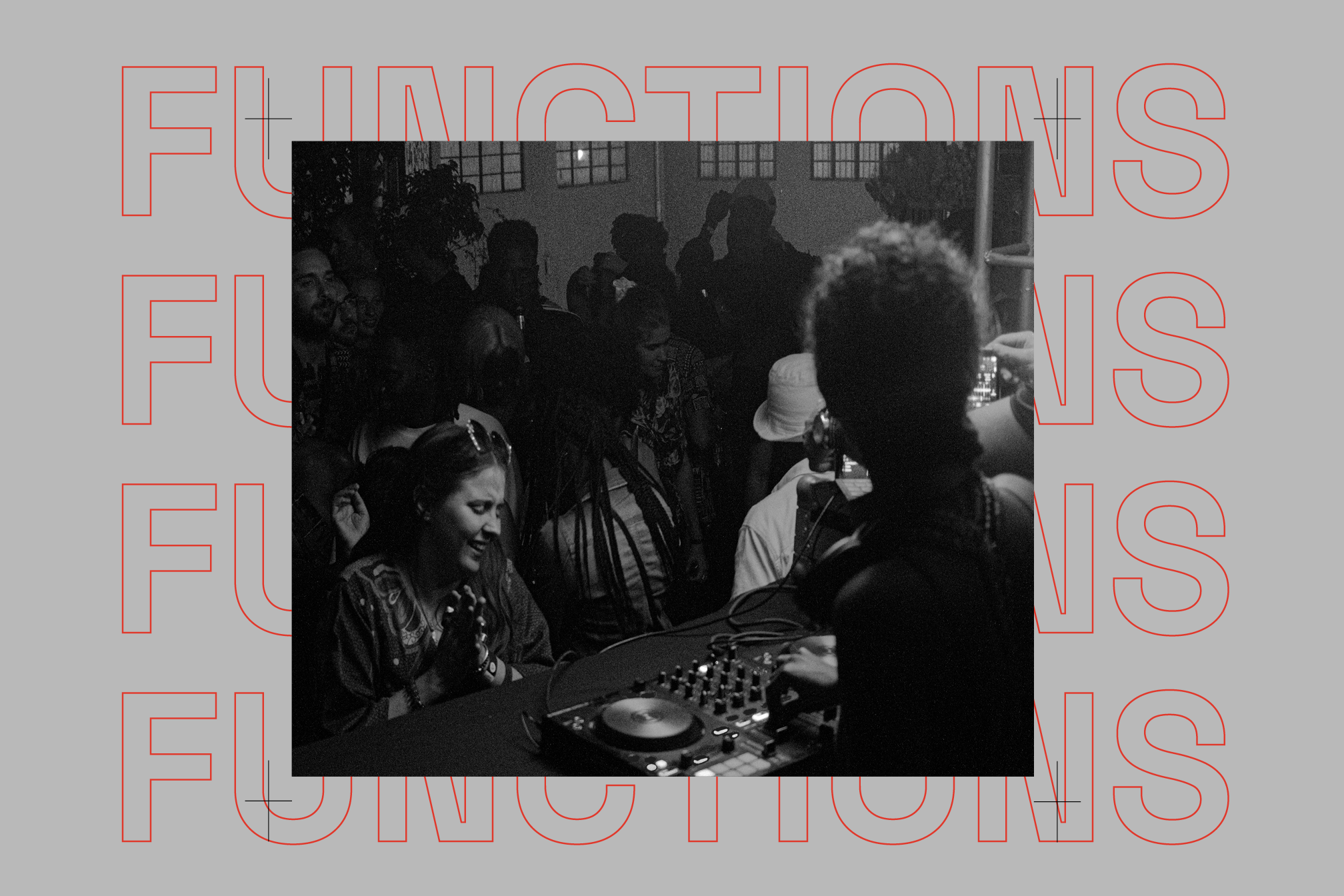
How do you go about picking the locations that you use?
Normally we hunt for locations ourselves. In Kampala we have something called a “boda boda”, which is kind of like a motorcycle. We ride around on these and look for spaces that could be turned into rave spots. We look for somewhere that is safe and will give people the distance they need to be themselves and express themselves. When we see a space we have a feeling, we just know it is the spot. We can also tell where all the equipment will go, we can envision where the soundsystem will be placed and where the people will dance.
There are problems with throwing a pop-up-style rave though. There are so many logistics of payments, wiring, technical issues and more that we must think about. So sometimes this can be expensive to run too. We try and pick locations that will give a raw experience to everyone attending. If you’ve got some dust and dirt getting on you while you’re on the dancefloor, you know that you’re having an authentic experience.
What does your community think about the party?
The community has been growing from numbers to numbers. The latest rave attracted almost 600 people. Kampala is very laidback, but also there’s a lot of stigmas around raves and music like techno. When people come together for an organised night like this one, it means so much to them. It’s the occasion that they get to let loose and connect with like-minded people. The attendees always look forward to it.
Read this next: Revolutionary impact: How ZVUK built dance music as a culture in Kazahkstan
Have you ever faced any problems caused by the stigma of raves in Uganda?
Definitely. At the last rave, we hosted Mariiza from Germany. We had a few issues with building management. At the top of the building was a church, and the rave took place in the basement and parking lot. The church did not know that the rave was taking place. So they were trying to host prayers upstairs and we were raving beneath them. They ended up calling the police on us, which was the first time that had ever happened to us! But the management of the building did not communicate that we were here. The management took the cash from me for renting out the building but didn’t even communicate to the landlord of the site that we were there. So, the landlord kept getting complaints that it was busy and loud, and we ended up getting in trouble because of this miscommunication. The police were called at the peak of the night! But the love that the community showed me was enormous. People stuck by me and helped me while I tried to sort out the situation. They said that the rave is so important to everyone and that “we’re a team working together”.
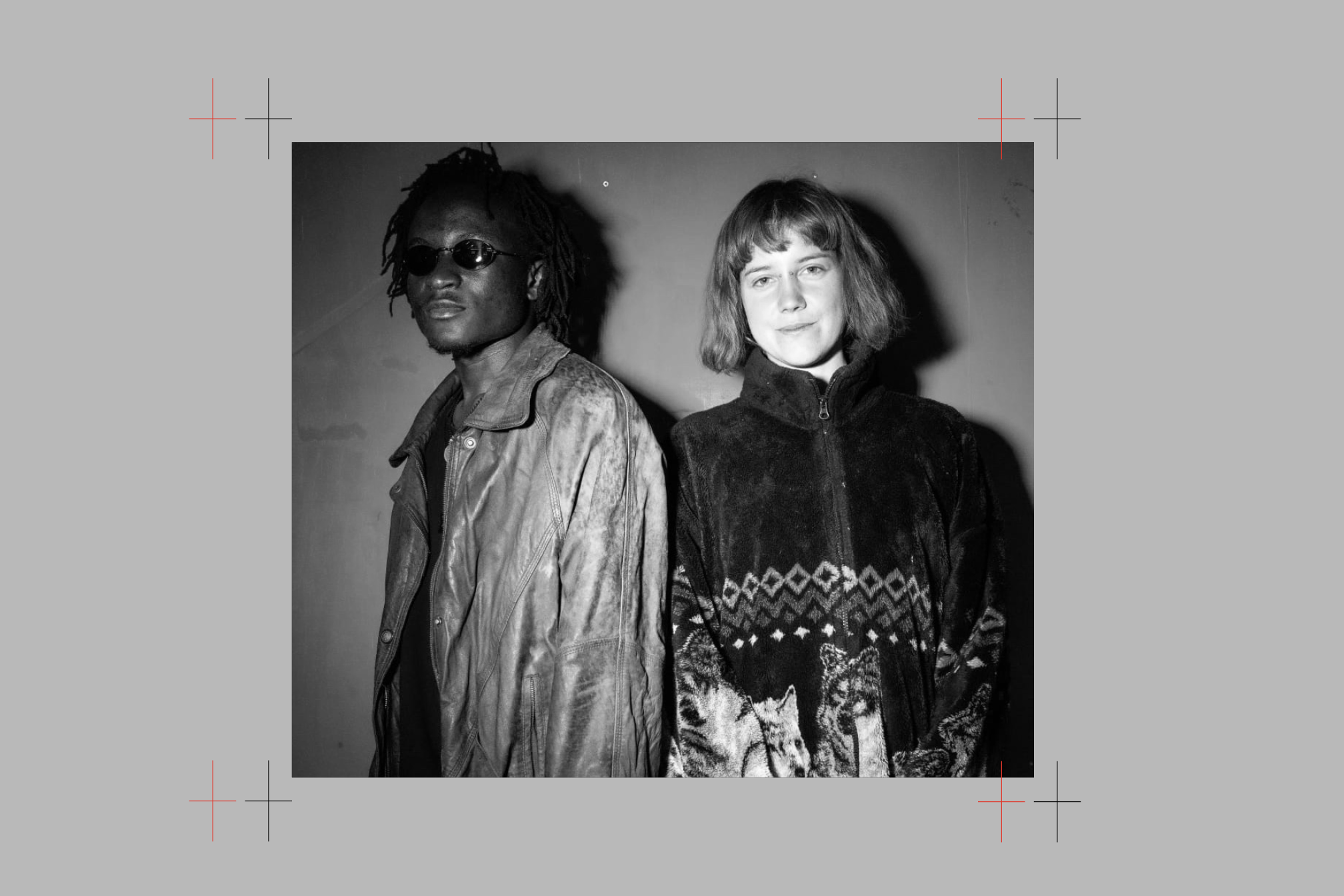
I’m glad you had support from the community. Do you work with the rest of the collective on the rave setup too?
There’s no set team, but as a collective, we do help each other. People who are available to help me with the set-up, whether it be the DJs, photographers or sound engineers, come together. Timothy, who’s a DJ and producer, always helps Underground Kampala with the sound engineering for the events. Another collective runs the bar – we collaborate with them on these events.
Do you have any resident DJs?
Yes! Anitraxx, Couscous Collections, Ranger Ray, and Thii have been with us throughout the entire time, they not only perform at each event but also offer their technical support.
You said you like connecting local Ugandan DJs with international DJs – how does that happen?
Right now, I’m working with a collective from Berlin. They’re called Reflekt. I also know promoters and party organisations in Nairobi, Kenya. We want to bring international artists from countries like Germany to East Africa. We’re giving these DJs a tour where they get to perform in Kampala for Underground Kampala and in Nairobi for Temple Nairobi. We also take them on a safari trip, and we hope that it enlightens their trip. This time spent doing activities helps us get closer to them too. We introduce them to our DJs here while we host them, and we hope it establishes a connection between them.
I do my own research on which DJs I think would be a good fit to come and perform here in Uganda. Sometimes DJs that have already played here recommend their friends and connections who they think would have a popular East African tour. If I like their mixes and them as people, then I try to get them here.
Read this next: Slikback is one of the most exhilarating artists in electronic music
Which international DJs have you welcomed to Underground Kampala in the past?
We’ve had quite a few! This includes Radical Softness, Lukr Range, Mariiza, Valentin and Crytech.
Is it exclusively techno at your parties?
It is all techno. In East Africa for the past five years, electronic music has had a big development. There’s been a big boom in Afro house and deep house, which is great, but we want to focus on techno to give a light to the techno talent in the region. At every event, we have new faces that are getting introduced to techno. I get to speak to them, and they say that they get recommended the rave by friends – it’s great to see more people join the techno scene. People from abroad who are travelling in East Africa also like to come to Underground Kampala events because it is one of the few places that give the type of music they like.
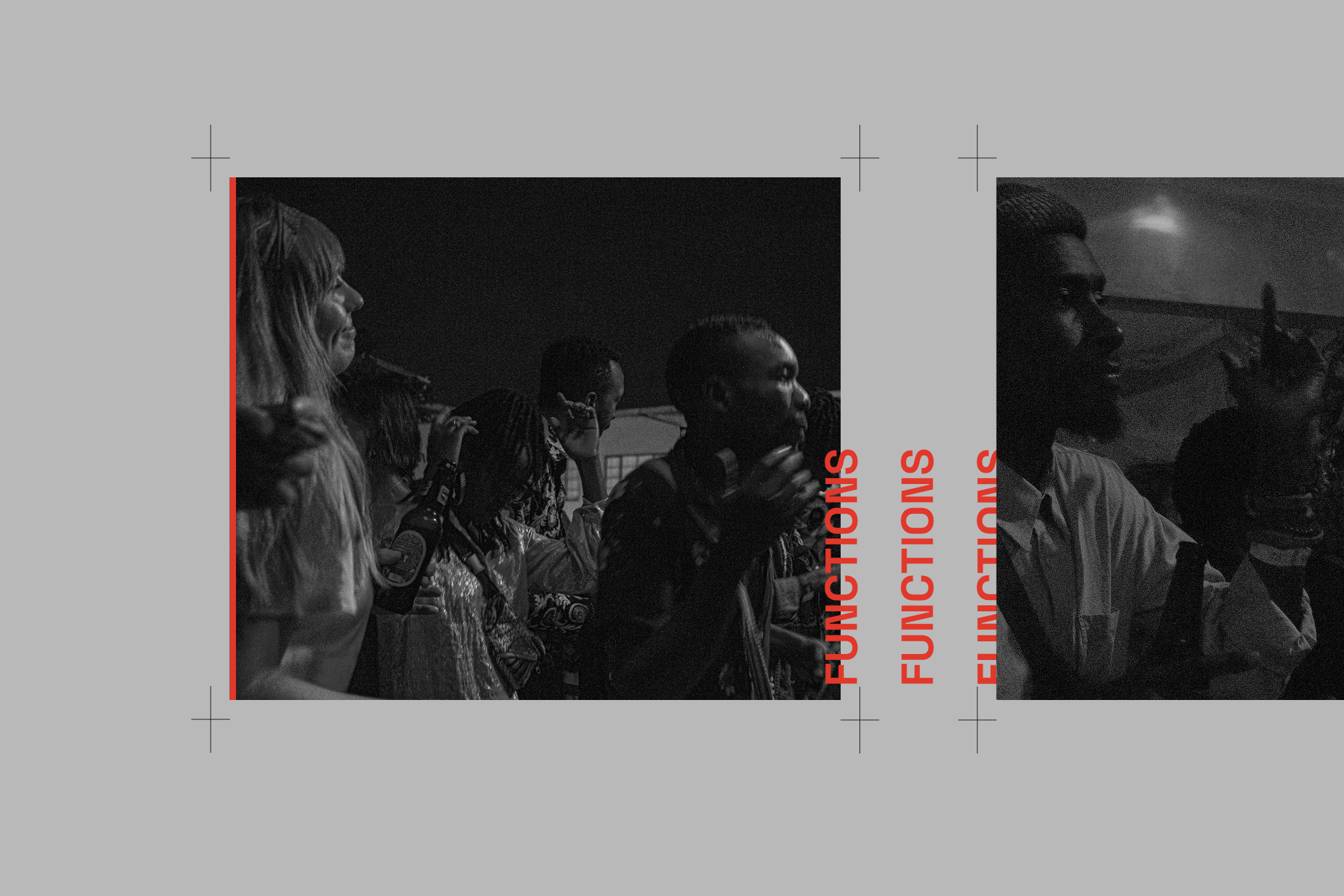
How do you make the rave a safe space for people?
We have a dedicated safety and awareness team at the events. They wear green wristbands so you can see them from afar and they check on everyone. These people are separate from bouncers – they’re very welfare focussed. We have set house rules where we say we prioritise inclusion, accessibility, and safety for attendees.
The prices reflect this, is this to be inclusive and accessible too?
Yes, because the techno scene is so small in the city, we want everyone to have a chance to enjoy it. Lots of people are very keen to join this community so we make it accessible. We have a slight limitation in the sense that we make sure everyone is a ticket holder and everyone is keen to hear the music. Sometimes people can come to these spaces with the wrong intentions, we keep them out.
Read this next: Coco Em's empowering dance music is uplifting East Africa's femme artists
What’s your favourite personal memory from one of the parties?
Honestly, there are too many good memories! I really appreciate every party and I’m constantly reminded of the love that comes with a good community of like-minded people. Each party elevates you to the next one and the next one and the next one. So, I don’t have a favourite.
Are you happy that the community is growing, from an intimate WhatsApp chat to almost 600 now?
I’m so happy! People get to appreciate techno music and culture, and we get to create our own techno culture together here in Uganda. We’re wanting to solidify this and make a permanent space for our party with a permanent soundsystem. We are currently raising money online for this. My dream is for a grand opening of a new space next year in 2023. It would be the first of this kind for techno in Kampala.
That would be great! Are you going to keep collaborating with other collectives and parties in the future too?
Yes, we’re in touch with Traction Soundsystem in the UK. They’re very keen and support our movement, they’ve given us a good quotation and want to collaborate with us to give us a soundsystem and good lighting and everything else we need.
What is the craziest thing to happen at one of your parties?
Well, probably the situation with the police coming into the basement out of nowhere! The DJs were playing and everyone was enjoying the peak of the night but then they tried to stop the party and caused a lot of hassle.
Underground Kampala is fundraising for a studio and DJ equipment to help its collective’s members develop their musical skills. The next rave is taking place on Saturday, December 17
Aneesa Ahmed is a freelance journalist, follow her on Twitter


